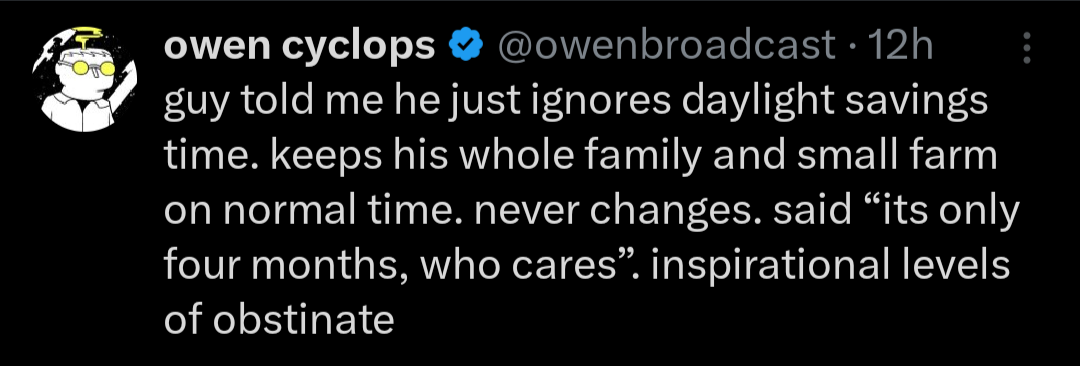this post was submitted on 07 Oct 2024
1136 points (99.4% liked)
People Twitter
5228 readers
2537 users here now
People tweeting stuff. We allow tweets from anyone.
RULES:
- Mark NSFW content.
- No doxxing people.
- Must be a tweet or similar
- No bullying or international politcs
- Be excellent to each other.
founded 1 year ago
MODERATORS
you are viewing a single comment's thread
view the rest of the comments
view the rest of the comments

Digital clocks were a thing long before the internet.
Source?
With the amount of idiots online, I have no idea if this is sarcasm or a genuine request.
I've never seen an idiot online. Source?
Source
From Wikipedia, the free encyclopedia that anyone can edit.
Digital in sense of how they displayed time, sure, but not digital in how they update it. Not connected.
Not online. Offline clocks, I should've said.
Who would think digital clocks are newer than the Internet wth
Oh, sure they are. The one I'm using has been around for 50 years: https://en.wikipedia.org/wiki/DCF77
Half the clocks sold here do support it, and even many "analog" (as in the clock face) ones.
The time-keeping in Central Europe is a bit different than ours here in the Nordics I see.
Either I'm so high that I've forgotten, or I learned something new from reading that. Thanks. TIL.
Obviously.